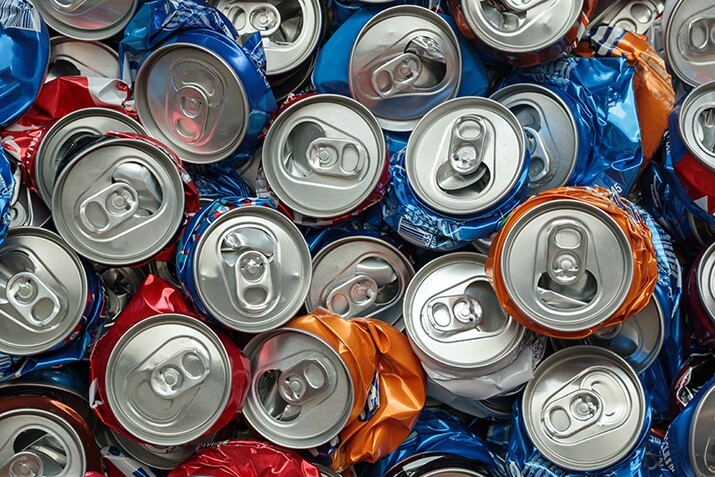您想继续阅读英文文章还
是切换到中文?
是切换到中文?

THINK ALUMINIUM THINK AL CIRCLE

Across Europe, Deposit Return Systems (DRS) are instrumental in advancing a circular economy for packaging. A collaborative effort involving producers, retailers, the government, and the operator RetuRO yields impressive results in Romania.

Results of the DRS
Launched in December 2023, Romania's Deposit Return System has recently completed its first full year of operation, showcasing impressive results:
About RetuRO
In Romania, the DRS is overseen by RetuRO, the national operator formed through a partnership between private companies and the Romanian Ministry of Environment, Waters, and Forests. Coca-Cola HBC participates in this consortium via the Romanian Soft-Drinks Producers for Sustainability (APBRS) industry association.
"The DRS is the largest circular economy project in Romania today . The whole purpose of this project is to increase the recycling rates here in Romania," explained Gemma Webb, CEO and President of ReturRO.
Additionally, the Brewers for Environment Association represents other producers as industry shareholders, the Retailers for Environment Association, and the Romanian State, represented by the Ministry of Environment.
RetuRO represents Romania's most successful public-private partnership and the nation's sole collaboration to advance the circular economy. As a shareholder in the DRS administration, the government works closely with producers and retailers to ensure the system's success. Effective implementation and operation also depend on the active involvement of key stakeholders.
About the DRS
Romania's Deposit Return System (DRS) is one of the most complex packaging recovery systems globally. It relies on the cooperation of 19 million Romanian citizens, 60,000 retailers, and 5,000 importers and producers, handling seven billion glass, plastic, and aluminium containers annually. By 2025, the system is projected to manage 5.6 billion containers. While participation is mandatory for retailers, importers, and producers, successfully engaging the population remains crucial to the system's effectiveness.
This extensive initiative encompasses nearly 60,000 collection points nationwide, establishing it as one of the most comprehensive integrated systems of its kind globally. Under the program, consumers pay a refundable deposit of 0.5 Romanian lei (approximately US$0.10) for each eligible beverage container.
The deposit is returned when the empty container is brought to a designated collection point. The system applies to all beverage types, including wine and spirits, and accommodates plastic, glass, and aluminium drink containers ranging from 0.1 to 3 litres.
"The great thing is that Romanian consumers have taken to it, and they're proud of it. This is really good packaging material because it's clean, it's separated into different colours, and it is already back in the system," Gemma shared.
"Anything that can be realised cannot be done without partnership. That's why we first started talking with the beverage industry in September 2016 and since then have implemented the DRS here in Romania," said Mihaela Frăsineanu, State Counsellor on the Chancellery of the Romanian Prime Minister.
Target of the European Union
The European Union has set ambitious targets to promote sustainability, which involves collecting, and recycling 60 per cent of aluminium, 75 per cent of glass, and 77 per cent of PET by 2025 and 2030, respectively. Achieving these goals heavily relies on implementing Deposit Return Systems (DRS).
DRS operate by adding a refundable deposit to the price of a product. After use, consumers can return the packaging to designated collection points to reclaim their deposit. The collected packaging is then transported to counting centres before being sent to recyclers, where it undergoes sorting and cleaning. Finally, the materials are returned to manufacturers for reuse or repurposing, completing the circular process.
"The DRS puts in the infrastructure to make it easy for consumers to recycle. Our network of retailers then collects the used packaging for us to sort, count and sell to recyclers. This is highly complex as we have to have sorting and counting centres all over the country," added Gemma.
About Coca-Cola HBC
Coca-Cola HBC was pivotal in establishing the DRS, leveraging valuable insights and expertise gained from its operations in other European CCHBC markets. Coca-Cola HBC's Ploiesti plant is the company's second-largest facility within the Coca-Cola HBC Group, producing 70 per cent of the total volume sold in Romania and exporting to 15 other countries in the region. The plant features cutting-edge decontamination technology powered entirely by renewable electricity, enabling it to process up to 20,000 tonnes of PET annually. This technology allows the production of bottles made entirely from recycled PET (rPET).
Responses








